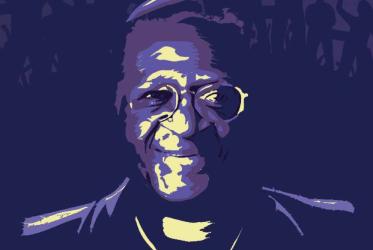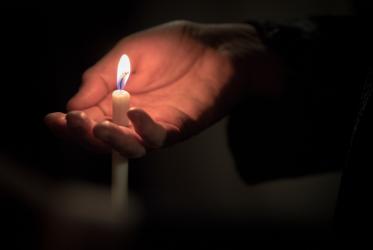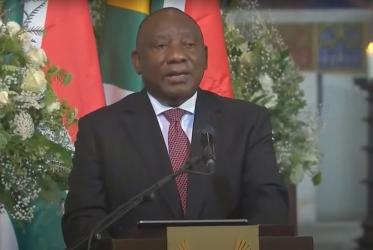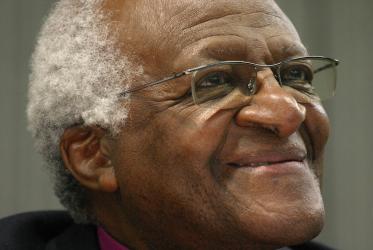On behalf of the World Council of Churches, I join you today to honour Archbishop Emeritus Desmond Tutu, to offer thanks for his service as a servant of God, a churchman of deep faith and a committed ecumenist, and for his decades-long struggle for our human dignity, and to commend his soul to God’s loving care.
In Desmond Tutu we all experienced a man of many gifts and accomplishments, as an educator and churchman, a leader in the liberation struggle here and abroad and in the quest for reconciliation, as a husband and father and friend. But here, in this house of God, I would lift up one indispensable passion in all he did, namely, his lifelong faith. Desmond Tutu was, first and last, a man of God.
Yet his faith was not a solipsistic search for certainty, security or a therapeutic comfort. It was rather a confidence in God’s loving presence and activity among us, God’s fulsome affirmation of our being human, and the fire for justice by which God energizes prophetic action. Desmond Tutu’s faith was, in the broadest and best sense, ecumenical, driving to overcome division in a zealous quest for God’s reign.
In his work with the World Council of Churches in the 1970s, we saw how his commitment to theological education grew to encompass ever wider sites of oppression and liberation, leading to his pan-African perspective and embrace of a Black Liberation theology for Africa.
In his ministry as a bishop and later as archbishop, we saw how he worked to reform the church, fully recognize the gifts and ministry of women, and bring Christians of all races and classes into one family.
In his style of leadership of the South African Council of Churches, we saw his commitment to common prayer and consensus decision-making, even as the council faced the enormously fraught questions of national identity and human dignity.
In his prayers and sermons, we saw how he continually lifted up the sacred imperatives that faith lays before us. When it comes to the human rights and dignity of women, of migrants and stateless people, , of oppressed people everywhere, what other authentic choice do we have? As he put it, “If you are neutral in situations of injustice, you have chosen the side of the oppressor.”
In his long public work against Apartheid and for national reconciliation, we saw how his faith led him to hope for confession, forgiveness, and reconciliation, even if they proved difficult and demanding, ever “looking for light, despite all the darkness.”
This is the kind of faith articulated in his cherished notion of ubuntu, which, he said, "refers to gentleness, to compassion, to hospitality, to openness to others, to vulnerability, to be available to others and to know that you are bound up with them in the bundle of life.”
In the end, it is the ecumenical faith of Desmond Tutu that made him one of us, one for our times, and one for the ages.
In his memory, let us nurture the flame of God’s love in our own lives, as in his, allowing it to consume us and fire in us the thirst for connection and hospitality, freedom and dignity, for advancing God’s dream, as he put it, “that you and I and all of us will realize that we are family, that we are made for togetherness, for goodness, and for compassion.”
Let the people say, “Amen!”
Rev. Prof. Dr Ioan Sauca
Acting General Secretary
World Council of Churches




